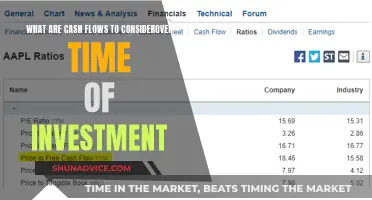
Blockchain technology is an ever-growing list of information, with blocks of data linked together using cryptography. It has become an attractive medium for peer-to-peer exchange of information and funds, offering security, transparency, and efficiency.
There are several ways to invest in blockchain technology, each with varying levels of risk and potential returns. One option is to invest in stocks of companies that are working on blockchain technology or implementing it in their operations, such as 360 Blockchain Inc, IBM, and Hive Blockchain Technologies. Another approach is to invest in small, blockchain-related startups, such as those built around the Ethereum network. A third method is to invest directly in cryptocurrencies like Bitcoin, Ethereum, or Ripple. Additionally, exchange-traded funds (ETFs) offer a way to invest in a basket of blockchain-related companies, providing diversification and professional management. Finally, individuals can consider angel investing in innovative startups that employ blockchain technology, although this carries a higher risk of failure.
What You'll Learn

Invest in blockchain stocks
Before investing in blockchain, it is important to understand how it works. Blockchain is a digital public ledger that records transaction information. Each "block" of information is digitally verified, given a unique hash (or identity), and added to the public ledger. In the case of cryptocurrencies, adding a new block creates a new unit (or coin) of currency. Blockchain technology is used in various sectors, including decentralized finance, international payments, auditing, and regulatory compliance.
There are a few ways to invest in blockchain stocks:
- Invest in ETFs: Exchange-Traded Funds (ETFs) are an easy way to get exposure to blockchain technology without purchasing cryptocurrency directly. Examples include Amplify Transformational Data Sharing ETF (BLOK) and Reality Shares Nasdaq NextGen Economy ETF (BLCN).
- Buy stocks of companies using blockchain: Some companies that are using blockchain technology include Walmart, PayPal, Nvidia, and Mastercard. Investing in these companies can provide long-term gains as they incorporate blockchain technology into their operations.
- Directly purchase cryptocurrencies: Another way to invest in blockchain is to purchase cryptocurrencies such as Bitcoin or Ethereum directly. This is a more direct way to invest in the underlying blockchain technology.
- Buy shares of a cryptocurrency exchange-traded fund (ETF) or a blockchain-focused fund: You can buy shares of a cryptocurrency ETF, such as the iShares Bitcoin Trust (IBIT). Alternatively, you can invest in blockchain-focused funds, such as those offered by ETC Group, Wisdom Tree, CoinShares, and 21Shares.
- Participate in crowdfunding: You can get involved in crowdfunding a new cryptocurrency through an initial coin offering (ICO). This allows you to purchase a new cryptocurrency issued by a developer working on a new blockchain project.
When investing in blockchain, it is important to consider the risks, especially when dealing with cryptocurrencies. Cryptocurrency prices can be highly volatile, and many new cryptocurrencies with underlying blockchain projects may not succeed. Therefore, it is crucial to do your research and understand the technology before investing.
Investing Inflow: The Key to Positive Cash Flow?
You may want to see also

Invest in cryptocurrencies
The most direct way to invest in blockchain technology is to buy cryptocurrencies. Every time you purchase a cryptocurrency like Bitcoin or Ethereum, you are investing in the underlying blockchain.
However, direct investment in cryptocurrencies can be daunting for newcomers. The technology can be confusing, and there are horror stories about scams and software bugs that have led to significant losses.
As a result, financial instruments have been developed to allow investment in the blockchain market without actually purchasing cryptocurrency. The most widespread solution is the exchange-traded fund (ETF). These funds buy shares of companies with exposure to blockchain technology, allowing investors to dip their toes into the blockchain market without the risks associated with direct cryptocurrency investment. Examples of blockchain ETFs include Amplify's Transformational Data Sharing ETF (BLOK) and First Trust's Indxx Innovative Transaction & Process ETF (LEGR).
If you do decide to invest directly in cryptocurrencies, it is important to do your research first. Take the time to learn about the technology, essential terms, and concepts. There are many online resources, including courses, articles, and videos, available for cryptocurrency education.
When you are ready to invest, choose a reliable cryptocurrency exchange platform such as Coinbase, Binance, or Kraken. These platforms allow you to buy, sell, and trade cryptocurrencies. It is important to find an exchange with a user-friendly interface, strong security measures, and responsive customer support.
Once you have purchased your chosen cryptocurrency, make sure to keep it safe in a secure wallet. There are several types of wallets to choose from, including hardware wallets (such as Ledger or Trezor), software wallets (available as desktop or mobile applications), and online wallets. Consider enabling two-factor authentication for extra protection.
Finally, remember to start small and diversify. Cryptocurrency markets can be unpredictable, so it is generally advisable to start with a small amount of money that you can afford to lose. Rather than putting all your money into one cryptocurrency, spread your investments across several to reduce the risks associated with volatile markets.
Stay informed about market trends, news, and developments so that you can make informed choices about buying, holding, or selling your investments. Use market analysis tools and follow reliable cryptocurrency news sources to stay ahead of the game.
Luno Investment Guide: Strategies for Beginners
You may want to see also

Invest in blockchain startups
The blockchain technology sector has experienced notable growth in recent years. As the technology matures, investors are keen to capitalise on the opportunities it presents.
Understanding blockchain
Before investing in blockchain, it is important to understand how it works. Blockchain is a digital public ledger that records transaction information. Each "block" of information is digitally verified, given a unique identity, and added to the public ledger. In the case of cryptocurrencies, adding a new block creates a new unit of currency.
Blockchain has the potential to revolutionise various industries, including healthcare, real estate, and lending. It can help organisations become more efficient, reduce the risk of cyberattacks and fraud, and complement other technologies such as cloud computing, e-commerce, and artificial intelligence.
Ways to invest in blockchain startups
There are several ways to invest in blockchain startups, each with its own risks and considerations:
- Directly purchase cryptocurrencies: Buying cryptocurrencies like Bitcoin or Ethereum is a straightforward way to invest in the underlying blockchain technology. However, the volatility of the cryptocurrency market and the risk of scams or software bugs may deter some investors.
- Exchange-traded funds (ETFs): ETFs are a popular way to invest in blockchain without directly purchasing cryptocurrencies. These funds include shares of companies pursuing business in the blockchain sector, such as IBM, Oracle, and Visa. Among the first blockchain ETFs are Amplify's Transformational Data Sharing ETF (BLOK) and First Trust's Indxx Innovative Transaction & Process ETF (LEGR).
- Invest in public companies involved in blockchain: Another option is to purchase shares of companies developing or utilising blockchain technology. For example, Walmart is using blockchain to track food distribution, and PayPal allows customers to use cryptocurrencies for transactions.
- Initial coin offerings (ICOs): Investors can participate in crowdfunding a new cryptocurrency through an ICO, which involves purchasing a new cryptocurrency issued by a developer working on a blockchain project. However, this option is highly risky, as many new cryptocurrencies don't succeed.
Considerations
While blockchain presents exciting investment opportunities, it is important to carefully consider the risks. Cryptocurrency prices can be highly volatile, and the failure of a blockchain project can lead to financial losses. Therefore, it is crucial to understand the technology, consider the risks, and make informed investment decisions.
Fidelity Investments: High-Frequency Trading Strategies and Secrets
You may want to see also

Invest in blockchain ETFs
The rise of blockchain technology has brought about a new wave of investment opportunities. Blockchain ETFs are a great way to invest in the potential of blockchain without actually purchasing cryptocurrency.
Blockchain ETFs are exchange-traded funds that invest in companies involved with blockchain technology. These companies are typically those that are pursuing business in the blockchain sector or are involved in the development and use of blockchain technology. The performance of these companies is tied to the success of their blockchain ventures, so investing in a blockchain ETF is an indirect way of investing in the overall blockchain market.
Blockchain technology has the potential to revolutionize various industries, and its adoption is increasing. By investing in blockchain ETFs, you can gain exposure to this emerging technology and benefit from its potential growth. Blockchain ETFs are also a good option for investors who are nervous about investing directly in cryptocurrencies but still want to participate in the blockchain market.
How to Choose a Blockchain ETF
When choosing a blockchain ETF, it is important to consider the methodology of the underlying index, the performance of the ETF, and other factors such as size, cost, age, income, domicile, and replication method. It is also worth noting that blockchain ETFs tend to have additional sources of volatility due to market-related and macro risks, so it is essential to carefully assess and compare different ETFs before investing.
Examples of Blockchain ETFs
- Amplify Transformational Data Sharing ETF (BLOK)
- Siren Nasdaq NexGen Economy ETF (BLCN)
- First Trust Indxx Innovative Transaction & Process ETF (LEGR)
- Bitwise Crypto Industry Innovators (BITQ)
- Global X Blockchain ETF (BKCH)
Final Thoughts
Blockchain ETFs provide a great opportunity to invest in the potential of blockchain technology without the risks associated with direct cryptocurrency investments. However, it is important to carefully consider your investment goals and risk tolerance before investing in any financial product, including blockchain ETFs.
Understanding Cash Investing Activities: A Beginner's Guide
You may want to see also

Invest in blockchain-adjacent tech
Blockchain technology is an ever-growing list of information, with each new piece of data (or "block") being linked to the previous one using cryptography. This technology is most well-known for its use in cryptocurrencies, but it has also found applications in various other fields, including finance, logistics, energy, healthcare, and retail.
When considering how to invest in blockchain technology, one must look at the companies that are developing and implementing it. Here are some ways to invest in blockchain-adjacent tech:
Exchange-Traded Funds (ETFs)
ETFs are investment funds traded on stock exchanges, similar to stocks. Blockchain ETFs own shares in companies that either have blockchain products and services or have business operations backed by blockchain technology. They are a relatively new and emerging investment area, offering low-cost, easy-to-purchase, and diversified investment options. Examples of blockchain ETFs include Amplify's Transformational Data Sharing ETF (BLOK) and First Trust's Indxx Innovative Transaction & Process ETF (LEGR).
Stocks of Blockchain Companies
Investing in the stocks of companies that are developing or implementing blockchain technology is another way to gain exposure to this field. This can include both companies that specialize exclusively in blockchain as well as those that use it as part of their operations. Examples of companies that have integrated blockchain include IBM, Amazon, Bank of America, Mastercard, Microsoft, and Google.
Startups and Initial Coin Offerings (ICOs)
Investing in blockchain-related startups is a popular way to get involved in this space. Many innovative startups are emerging in the market, and while some may fail, those that succeed can provide excellent returns. Additionally, individuals can participate in ICOs, which involve crowdfunding a new cryptocurrency through a developer working on a new blockchain project.
Pick-and-Shovel Investment
This strategy involves investing in the infrastructure, software, or mechanisms necessary for blockchains to function. This can include investing in public companies that provide these solutions, such as IBM and Amazon, or hardware companies like Bitmain and NVIDIA.
Cryptocurrency and Digital Assets
Investing in cryptocurrencies is one of the most common ways to gain exposure to blockchain technology. This can be done by setting up an account on a cryptocurrency exchange and trading or investing in various coins. Additionally, digital assets beyond cryptocurrencies, such as tokenized gold, art, or real estate, can also be considered.
Crypto Mining
Investing in crypto mining involves contributing computing power to a blockchain network and being rewarded with tokens. This can be done individually or through mining pools, where a group of miners combine their resources and share the rewards.
It is important to note that investing in blockchain-adjacent tech comes with varying levels of risk, and individuals should carefully consider their options and conduct thorough research before making any investment decisions.
Understanding Investment Sensitivity to Cash Flow Changes
You may want to see also
Frequently asked questions
Blockchain is a digital public ledger that records transaction information. Each "block" of information is digitally verified, given a unique identity, and added to the public ledger.
There are several ways to invest in blockchain technology. You can buy the associated cryptocurrency, invest in blockchain stocks, or invest in blockchain-related startups.
Blockchain technology is subject to the same risks as any other investment, including market volatility and the potential for scams or software bugs. Additionally, there may be regulatory costs associated with investing in blockchain technology.







